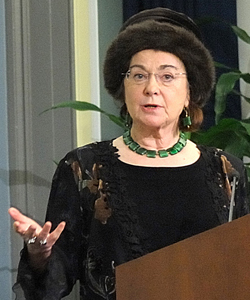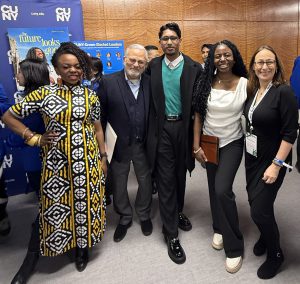It is with sadness and solidarity that we share the news of the passing of Dr. Elizabeth Fee, an esteemed public health historian, on October 17, 2018. Dr. Fee is considered to be one of the most influential public health writers of the 21st century. She was a tireless fighter for social justice and a founding member of the APHA caucus, ‘Spirit of 1848’. After many years of service to public health, she recently retired from her job as the Chief, History of Medicine Division at the National Library of Medicine in Bethesda, MD.
The Women’s Caucus of APHA has asked that we share this moving tribute, authored by one of Dr. Fees close colleagues (and former advisee) Dr. Anne-Emanuelle Birn, Professor of Social & Behavioral Health Sciences Division with the Dalla Lana School of Public Health at the University of Toronto.
A tribute to Dr. Elizabeth Fee
We are deeply saddened to announce the passing of Dr. Elizabeth Fee. Dr. Fee was a remarkable and influential public health historian, whose personal and professional trajectories led her to speak truth to and about power in public health, past and present.
From 1974 to 1995, Dr. Fee was a professor at the Johns Hopkins School of Hygiene and Public Health (now Bloomberg School), first in health humanities, then international health, and finally health policy, infusing historical and critical perspectives into each of these fields. Deeply curious about her institutional base, in 1987 she published Disease and Discovery: A History of the Johns Hopkins School of Hygiene and Public Health, 1916-1939. In this first-ever biography of the first-ever school of public health, Dr. Fee crafted what might have been a staid institutional history into an engaging and eyebrow-raising account that retraces the powerful forces, figures, and ideologies that shaped the school’s founding and early trajectory.
In 1990 Dr. Fee took over editorship of a rather moribund historical section of the American Journal of Public Health (AJPH), called “Public Health, Then and Now” (which had earned the moniker of “Public Health, Now and Then” due to its infrequent appearance!). Together with Ted Brown, she transformed this section into one of the most dynamic aspects of the journal, making it a go-to venue for cutting-edge history of public health scholarship.
After influencing countless students and many colleagues over two decades at Johns Hopkins (where I was privileged to be her advisee), in 1995 Dr. Fee was named Chief of the History of Medicine Division (HMD), National Library of Medicine (NLM), at the National Institutes of Health in Bethesda, MD, USA. In 2011, she became the Chief Historian of the NLM, a position she held until her retirement just a few months ago. At NLM, Dr. Fee added leadership and administrative skills, as well as a talent for engaging with broader publics, to her teaching and writing finesse.
In 1994 Liz helped cofound the Spirit of 1848, which is a Caucus affiliated with the American Public Health Association (APHA) and is committed to underscoring and analyzing the integral connections between social justice and public health. Both its listserv and its sessions at the APHA annual meeting are aimed at addressing the professional, practical, and scholarly isolation many progressives experience – and at working collectively and in dialogue, to understand and change how social divisions based on social class, race/ethnicity, gender, sexual identity, and age affect the public’s health. With the Spirit of 1848’s history committee consciously linked to the Sigerist Circle, Liz helped infuse historical passions and sensibilities into the Spirit of 1848’s various activities around the politics of public health.
Dr. Fee was the recipient of numerous honors, including Kellogg and Fulbright fellowships, the National Library of Medicine Regents Award, the Arthur Viseltear Award from APHA’s Medical Care Section, as well as endowed lectures across the world. Her more than 200 articles and chapters cover topics as diverse as bioterrorism, sin vs. science in the racialized treatment of syphilis in Baltimore, and popularizing the toothbrush, ever posing the question of whether there is anything to learn from history and speaking to both specialists and a broad public of all ages.
In recent years, despite facing multiple health challenges, Liz continued to write prolifically, particularly short pieces with a wide audience in mind that shed light on often little-known revolutionary figures and movements.
This small snapshot could not possibly capture the scholarly, professional, and personal contributions that Liz made across her lifetime. Without a doubt, the work of Elizabeth Fee, the doyenne of public health historians, will endure and continue to inform the critical progressive work of the many communities of practitioners, activists, politicians, and scholars around the world whose lives Liz touched and whose work she inspired.
–Anne-Emanuelle Birn, for whom Liz was a gem of a comrade, friend, & mentor.
*Dr. Fee’s beloved wife and sometime co-author, Mary Garofalo, has asked that donations in honor of Liz be made to the ALS Foundation and to progressive public health causes across the world.




